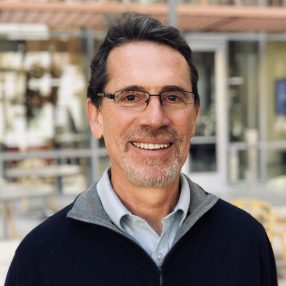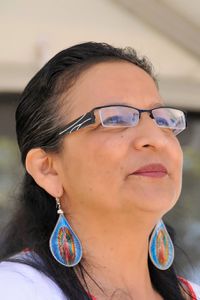UT and East Austin Residents Collaborating on Climate Change Resilience
November 28, 2022

Researchers from The University of Texas at Austin are partnering with local community groups to help make underserved East Austin neighborhoods more resilient in the face of climate change and issues related to urban growth.

The new five-year project is led by the UT Jackson School of Geosciences Environmental Science Institute (ESI) with help from local community groups such as People Organized in Defense of Earth and Her Resources (PODER). The goal of the collaboration is to bring researchers together with neighborhood residents and organizations who can best define community needs, said ESI Director Jay Banner.
“All too often I think outreach from science communities is, ‘We’ve come up with these research results and here they are, go figure out how you can best use them,’” he said. “But equally important is the expertise and knowledge base of members of the community and community organizations that know best what their community needs.”
The $7-million effort, funded by the National Science Foundation, is officially known as Community Resilience Integrated into an Earth System Science Learning Ecosystem (CRESSLE). It involves experts from throughout UT, including the Jackson School of Geosciences, School of Information, College of Liberal Arts, Dell Medical School and LBJ School of Public Affairs. The University of Arizona is also involved.
The research will be divided into three general categories: Water Resources, Climate Resilience, and Communities & Landscapes. The first year, beginning in early 2023, will involve a series of community and research surveys to help determine the barriers to and opportunities for such community-based research.

East Austin is a historically underserved section of the city that is home to communities of color, although parts of it have undergone rapid gentrification in recent years. In general, the area is more susceptible to climate change impacts and other issues associated with urban development, because of its lack of green space, history of industrial development and lack of urban planning, said Banner, who is also a professor at the Jackson School’s Department of Geological Sciences.
“If you look cross Austin and the social vulnerability index as we go from west to east, it just shoots up and is high east of I-35,” Banner said. “This is in line with a pretty long history of institutional racism in Austin, which is common to most major U.S. cities.”
PODER is a 30-year-old environmental justice organization with members from six East Austin neighborhoods. PODER Executive Director Susana Almanza said that involving the community in the project is vital for its success.
“Participatory research is very important to us because we believe our grass roots communities should always be at the table,” she said. “We really want to make sure the community is involved with the design and final outcome.”
In addition to tackling community problems, a goal of CRESSLE is to help young geoscientists build connections with diverse community groups and understand the value of community-based research, and to introduce the East Austin community to the value of the geosciences, which is historically among the least diverse STEM fields. Each of the three research cohorts will include graduate students and a postdoctoral fellow, as well as faculty researchers. One of PODER’s main thrusts is education, and Almanza said that increasing the community exposure to the geosciences — a field that deals directly with threats posed by a changing climate and environmental issues — could be a valuable experience for students looking to follow career paths that will help solve these issues.
“It’s always important for us to expand the horizon for our youth, and the people in East Austin aren’t exposed to a lot of these issues,” she said.
For more information, contact: Anton Caputo, Jackson School of Geosciences, 210-602-2085; Monica Kortsha, Jackson School of Geosciences, 512-471-2241
